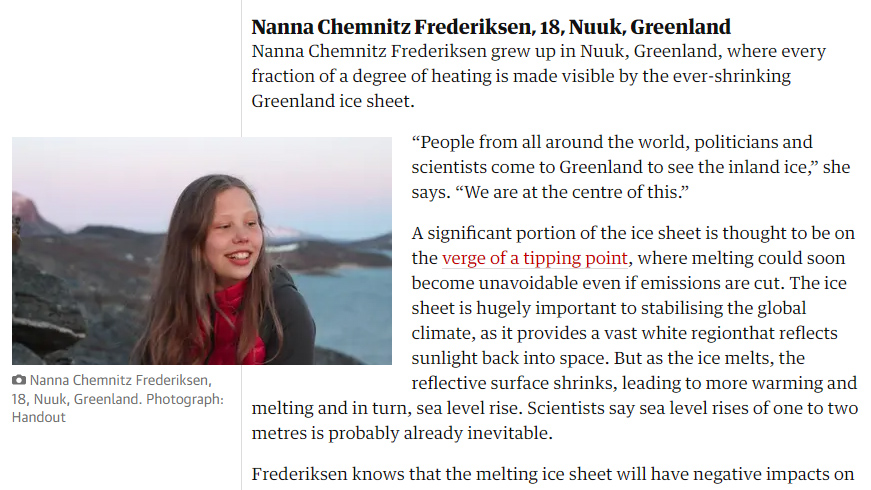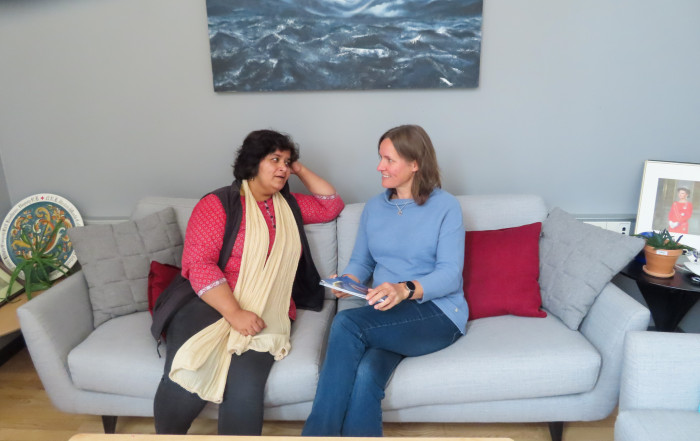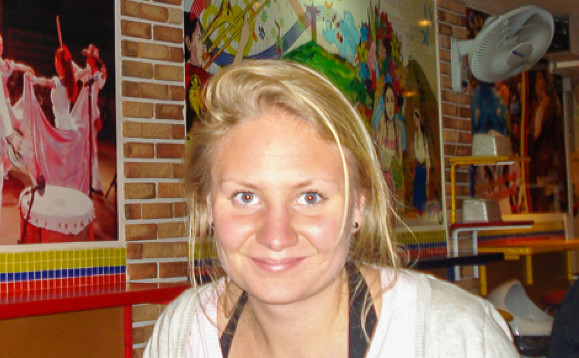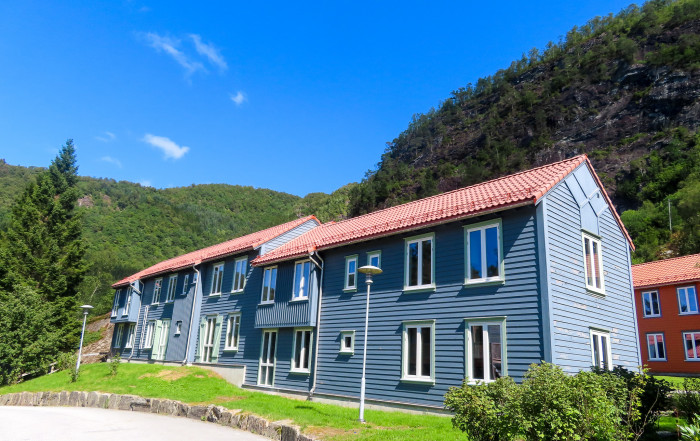“People from all around the world, politicians and scientists come to Greenland to see the inland ice,” she says. “We are at the centre of this.”
A significant portion of the ice sheet is thought to be on the verge of a tipping point, where melting could soon become unavoidable even if emissions are cut. The ice sheet is hugely important to stabilizing the global climate, as it provides a vast white region that reflects sunlight back into space. But as the ice melts, the reflective surface shrinks, leading to more warming and melting and in turn, sea level rise. Scientists say sea level rises of one to two metres is probably already inevitable.
Frederiksen knows that the melting ice sheet will have negative impacts on communities across Greenland, especially in northern settlements such as Qaanaaq where permafrost melting is destabilizing homes and roads and impacting how fishers and hunters operate.
But her real concern lies on the impact it will have globally. “I am not so scared of what the effects of the melting of ice in Greenland will be,” Frederiksen says, “It scares me what effect it can have for the rest of the world.”
Latest News
New and Relevant Courses
At the start of a new school year we are introducing two new subjects, French Ab Initio and Information Technology in a Global Society (ITGS). With more than 300 million users, from five continents, [...]
In Memory of Disa Hynsjö (RCN 2005-2007)
With shock and great sadness, we have learned that Disa passed away suddenly and unexpectedly, on July 18, 2021. Countless friends and staff members have fond memories of her time here at the College, [...]
Renovation of the Student Residences – Mission Accomplished
With the Iceland House we have finished the renovation of all the student residents. This has been a comprehensive, two years job with many involved that aimed to extend the life of the building [...]




